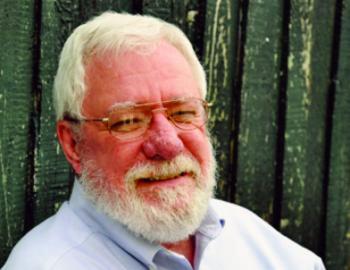
Jim Bradshaw
Roberts Cove celebrates its culture
Until World War I, the German roots of Roberts Cove in Acadia Parish were as apparent as the roots of the oaks that shelter the community. The war changed that, and that heritage might have been lost had it not been for the work of two priests.
The settlement was founded in the early 1880s by immigrants fleeing Chancellor Otto von Bismarck’s kulturkamp, which included persecution of German Catholics. The émigrés were mostly hardy farmfolk and they were among the first to begin large‑scale rice cultivation on south Louisiana prairies.
For four decades, in the words of historian Rienhart Kondert, “they flourished as Germans in a sea of French Acadians.”
But the bitterness and suspicions brought on by the First World War, which pitted America against Germany, changed that idyllic life.
With the outbreak of the war their neighbors here — as in communities across the nation — became suspicious of these people who spoke the language of their enemy. Who knew what they were talking about when they muttered among themselves in that foreign tongue?
The German language, once used freely at home, church, and school, now aroused animosity.
Louisiana’s harsh anti‑alien laws added official sanction to the most outlandish suspicions.
Among other things, the laws forbade the teaching of the German language in all Louisiana schools — from kindergarten (a word of ironic origin in this context) to graduate school; made it illegal for anyone to use the language of a nation at war with the United States in official gatherings; and prohibited sale of materials made in Germany or distribution of anything printed in German.
The laws were repealed in 1921 but the damage was done.
Roberts Cove Germans had been forced to give up their German language and ways, and there was no going back to what had been before. By the early 1950s their language and customs were all but gone.
That’s when Father Gerard Wolbers, pastor of St. Leo Church, began to interview the last of the German speakers about their language and local customs, to revive their pride of heritage.
He reintroduced some of the old German songs that had been sung before the war and revived the St. Nicholas celebration that continues today during the Yule season.
Later in the 1950s, Father Charles Zaunbrecher, a native of Roberts Cove and descendant of one of the early settlers, began a crusade to build upon Father Wolbers’ work and bring the culture back to its original fullness.
One of the things he did was to encourage family reunions, during which the old folks could pass on the traditions and mores to younger generations.
Those became a huge success, and eventually the outside world heard of it, and also wanted to learn about this unique enclave.
And so began the Louisiana version of the Oktoberfest celebrated each year.
Now hundreds of their Cajun, Creole and American neighbors join with them each year to celebrate one of the many cultures that make south Louisiana unique.
Many of the families, of course, have intermarried into solid Cajun families that can easily understand stories of being forced out of a homeland, forced to give up their language almost to the point of its death, and near loss of a cultural identity.
You can contact Jim Bradshaw at jimbradshaw4321@gmail.com or P.O. Box 1121, Washington LA 70589.
- Log in to post comments
